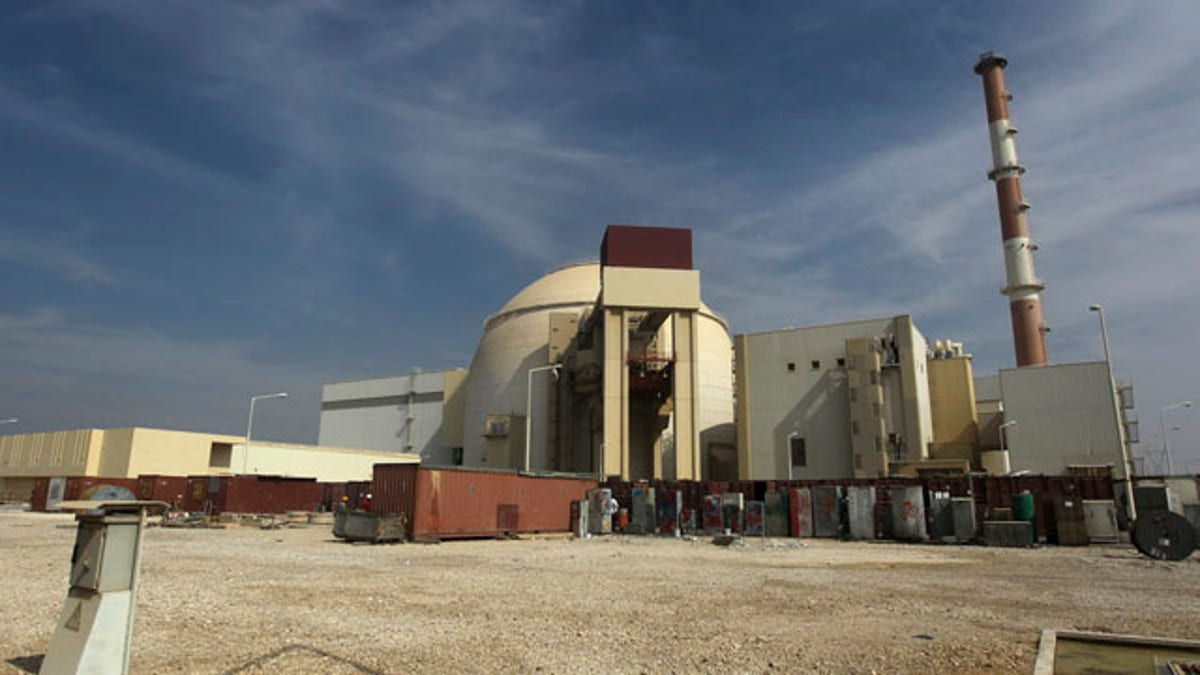
Oct. 26, 2010: A worker rides a bicycle in front of the reactor building of the Bushehr nuclear power plant in Iran. (AP)
TEHRAN, Iran -- Iran's commerce minister on Saturday denied that international sanctions imposed on the country over its disputed nuclear program have damaged Tehran's trade ties and said the penalties will prove futile.
Iran is under four sets of U.N. Security Council sanctions as well as other penalties by the United States and the European Union over its refusal to halt uranium enrichment -- a technology that can be used to produce nuclear fuel or an atomic bomb.
The U.S. and other Western powers accuse Iran of using its civilian nuclear program as a cover to develop nuclear weapons. Iran denies the charges, saying its nuclear program is for peaceful purposes.
Commerce Minister Mahdi Ghazanfari called the sanctions "ineffective," and said they "have not affected our trade with other countries so far."
He said that if the sanctions were really having an impact, then the U.N. would not have had to impose four sets of them.
Ghanzafari's comments come after the president of the Iranian Chamber of Commerce, Mohammad Nahavandian, said last week that the international penalties have begun to take a toll on the economy, pushing up the cost of living.
"Sanctions can't halt the importation of goods into Iran but estimates indicate that the cost of imports has increased between 15 to 30 percent," Nahavandian was quoted as saying by the semiofficial ISNA news agency.
In order to get around the sanctions, analysts say Iran has increasingly used front companies based abroad to import technology that may have civilian and military uses. But Iran is finding it increasingly difficult to continue this cat and mouse game because of strict banking restrictions and tighter rules that ban the export of any dual use or technological equipment that could wind up in Iran's hands.
Also Saturday, President Mahmoud Ahmadinejad said that Iran's foreign currency reserves exceed $100 billion, despite sanctions.
"The country's foreign exchange reserves have been estimated at $100 billion, but it's definitely more than this figure," Ahmadinejad said in a statement posted on his office's website.
In the past, the president has refused to provide even a rough figure for the reserves, saying the information should remain confidential amid stiffer international sanctions.
The head of Iran's central bank, Mahmoud Bahmani, said Tehran has boosted its reserves by buying hundreds of tons of gold at a price that has since doubled, according to the state news agency IRNA.
The sanctions target Iran's nuclear and missile program, and it there is no official report on how they have affected Tehran's nuclear program.
Experts believe the international penalties have hampered Iran's nuclear progress, citing a smaller number of operating centrifuges at Iran's main uranium enrichment plant in Natanz compared to a year ago.
The number of operating centrifuges at the underground facility in May was 3,936 compared to around 5,000 last year, according to the International Atomic Energy Agency.







































